In this article, I want to tell you about my experience as a beginner in the freelance work-mode.
You will discover how I started from zero, and that today this is my current profession with ensured monthly incomes and several clients. Among other things, I will explain:
- How long it took me to start-up in freelance work;
- What is the best moment in your career to stepping in the freelance work-mode?
- What are the most in-demand freelancer profiles within the market?
Once you have reached the bottom of this guide, you will be able to start working professionally as a freelancer. Moreover, if you already are a freelancer, you will find out how to further positioning in the labour market and build enduring customer loyalty.
Why did I become a freelancer?
Last year, I had the opportunity of growing my business thanks to freelance work. I know this became real through tough work and thanks to some strategies I constantly use.
My believing that financial, geographical and time-management freedom are fundamentals made me embrace this opportunity. In this article, I want to share some tips about how to start up your freelance job successfully.
I always say that I did not step in freelance work because of one sole reason but due to a series of different facts. I worked for almost 20 years in multinational enterprises, under a traditional work contract, counting with all the well-known benefits.
I never thought about giving up work. However, after my son was born, coping with the routine of travelling and not having a fixed schedule to get home turned into a problem for my personal life. I was always out of the office, travelling to different places within the country and abroad. Just imagine! With a baby, all this became impossible.
When the situation turned unbearable, I had to make a decision! My role as a mother could not be covered through outsourcing, but I had the option to start offering my professional services for enterprises through outsourcing. Besides, to continue living in Sao Paulo was not my goal, since I was seeking a better quality of life for my family.
That was the moment when I pictured the opportunity of turning into a marketing consultant and working remotely. The first step I took was to update my skills, seeking for courses that would enable me to specialise in the latest trends in my professional field: marketing.
In one of those courses, I heard about freelance work. So from that moment onwards, a window of opportunities opened in my life!
When is the ideal moment in a career to start up in freelance work?

I think there isn’t “a perfect time” to start up in freelance work. Moreover, you can build your professional career from zero by working as a freelancer.
The decision about the best moment to start up is entirely yours. Firstly, you must know that when opting for the freelance lifestyle, you will be the grand entrepreneur of your career in the most active sense. Getting projects and clients, managing your time and creating the conditions to deliver a project are only some of the features in this profession.
I believe that the most important thing to start up as a freelancer is knowing what your skills are, what quality services you can offer, so that clients hire you, rehire you and even recommend you.
The incursion in freelance work-mode requires that you explore all your creativity, as well as your personal and professional knowledge and seek for permanent training.
However, after all, what does it mean to be a freelancer?

According to the definitions provided by the Merriam-Webster dictionary, a freelancer is “a person who acts independently without being affiliated with or authorised by an organisation; Also, it is a person who pursues a profession without a long-term commitment to any one employer”.
Complementary, Collins Dictionary adds that a freelancer is “a person who is not employed by one organisation, but is paid for each piece of work they do, by the organisation they do it for”. Generally, freelancers work at home and take full advantage of the Internet to connect with clients and deliver their work.
Nevertheless, nowadays there is still some lack of understanding of this work mode. Many people view independent working as an option triggered by the lack of job opportunities, or even as a secondary or temporary means to generate incomes.
That idea is far from being the truth. Every day, more and more professionals choose to work under freelance modality because of the many benefits it provides. Following, we will mention only some of the reasons which boost remote workers to grow in number all over the world:
- Mobility: freelance mode enables a professional to perform his work from any place, be it home, a café or a co-working space. This modality allows one’s transferring from one city to another, getting a quieter workplace, or even moving to that place on the beach you have always dreamed of.
- The possibility of working remotely from any place in the world: you may work with a multicultural team, [with members] from different parts of the country, or even of the world!
- Being closer to your beloved ones: for moms like me, it is possible to organise and be closer to your children. Every day, I take my son to school and pick him up. I also take him to football and English classes. Besides, I am home during the day, so I am available in case he needs anything. Naturally, in periods of tough work, my laptop becomes my inseparable mate, while my kid is busy with some out-of-school activity.
- Better management of time: you have the chance to establish schedules of your own. Whether to choose the time when you will start working, at what time you will finish and if you will be available every day or not. There is no obligation to work a certain number of hours a week or to comply with some arranged schedule, as it happens in a traditional job.
- Having the possibility to offer your work to many enterprises: since you will manage your schedule, you may provide your services to many clients. The significant advantage is that your income will not come in from one single place, as happens in any traditional job.
What is the difference between freelancing, autonomous work and telecommuting?
As I already mentioned, there are many reasons why independent work is increasingly growing all around the world.
However, there is a difference between being a freelance worker, an autonomous one and a teleworker. Do you know what each one of these terms means?
To help you understand the differences among them, we have prepared a brief explanation with their main features:
- Freelancing: In general, a freelance professional is a person who has some technical or university training and works independently. A freelancer may operate at a fixed place, or remotely, may establish a long-term relationship with an enterprise or perform some specific qualified work.
- Autonomous: Autonomous workers tend not to have academic or professional training, and are generally not qualified in some specific area. Often they are devoted to general services such as painting, plumbing, and building services. More often than not, they do not hold labour ties with any enterprise. Mostly, they perform specific jobs which tend to be of short duration.
- Telecommuting: This category includes all the activities that can be performed remotely, relying on all the tools provided by technologies, such as the Internet. It is the format which is attaining the highest growth rates. Most generally, it is also performed by people with scholar education, following the tracks of the «home office» model, and, therefore, they are employees of an enterprise who develop their functions and tasks from their homes.
Which are the most in-demand freelancers within the market?
In 2018, just like in many prior years, Workana conducted a study named «Report on independent work and entrepreneurship». This survey aimed at finding out the current situation within the market throughout all Latin America and measuring the growth attained by freelance work and entrepreneurship in the region.
The categories which mostly stood out were those related to the Internet and digital marketing. This growth has a direct connection with the current entrepreneurial need of maintaining a robust online presence and enhancing the bonds between enterprise and consumers.
However, regardless of these being the most attractive categories, my advice remains always the same: Do what you enjoy most! Don’t risk yourself in offering a service which you would not know how to perform.
Investing in your expertise, apart from developing personal skills, and speaking languages will make a difference in your career as a freelancer.
What are the pros and cons of being a freelancer?
Just like anything in life, there are pros and cons derived from opting for freelance work-mode.
When we start-up our life as freelancers, we must keep in mind some aspects that would not be a concern in case we held a traditional job. For example:
Taxes and fees

When we work autonomously or freelance, we are responsible for collecting and paying our taxes. Therefore, it is essential to pay close attention to this, to avoid future problems.
Management of time

Time is Money! Not to procrastinate is the rule!
Since flexibility is one of the significant advantages of freelance work, daily organisation proves essential to fulfilling the tasks you have taken on. Nobody will be there to monitor you, and it will not be elegant that the client has to claim for delays: this may cause that your relationship has a short duration. In other words, freedom must go hand in hand with responsibility.
In the opposite side, there is a danger of becoming a workaholic and spend hours and days without resting, focused solely in work. Beware! The fact that the office is at home does not mean that you have to be locked inside it.
Finances

Finance management is another aspect on which to pay close attention! Like liberal professionals, freelancers may have very variable incomes, so it is essential to know how to manage financial issues, to lead a happy and responsible freelance life.
Except that you work in medium or long-term contracts, it is likely that one month you bill an important amount of money, but not so the next. Or you may even stay without projects and, therefore, have no income at all.
Being a freelancer means to know how to open doors to new businesses and to diversify. However, without dedication, effort, study and will, your clients may gradually vanish, and you would risk ending with empty hands!
However, with proper dedication, you will make a considerable volume of work and deliver optimal results to all your clients. Once again, time management plays a key role. See how everything is connected?
Once again, I will repeat: Do what you enjoy most! Work on your fields of expertise and not on something for the sole reason that it is “fashionable”. Also, if you are working with partners, try to get an insight into the job that will be carried out, so that you can share your opinion while it is being executed.
How to stand out as a freelancer
Whether you are starting up your career now, or you are already doing some freelance job, the first key step to stand out is planning.

It is vital that you set up a routine and prepare your workplace environment. Think about how you will introduce yourself to clients, how you will submit Project proposals and what kind of services you will offer. All these facts will help you increase efficiency in your work as a freelancer.
According to Forbes magazine, there are some marketing tactics which prove fundamental to be successful in the freelancing area. These are: knowing how to build networking, having good communication skills, excellent writing, and spreading your work in social media.
For those who are beginners in freelancing, here I have some personal tips to share:
- Know what your skills are: In my case, I have a 20-year background working in multinational companies. Throughout my career, I have worked in consumer goods companies, in the machinery and equipment industry for the building sector, but always in the same area: the Marketing department. In my “backpack” I carry skills such as strategic planning, branding, events and exhibitions organisation, marketing planning, social network management and, of course, writing (which has always been my passion!). Precisely, that is how I introduced myself! All this know-how may be useful for other companies.
- Build your portfolio: If you have never worked as a freelancer yet -which was the case when I started up-, send your resume, including your main achievements and also adding links to the Works you have already completed. At first, I used networking to introduce myself to those enterprises which I knew could purchase my services. There are some applications, such as Behance, that can help you to have an online portfolio.
- Please don’t go around sending bids to any project you find: Choose those projects you find more suitable for your profile, making sure that you will know how to execute them. If your idea is to build an excellent portfolio, in the beginning, you may offer your job for a more convenient price to gain experience. For sure, each project will provide some new learning.
- Study: Never stop acquiring new knowledge. Look for training in courses, read e-books, take part in Facebook forums, and freelance communities. Since the market is continuously assimilating new things and opportunities, being out-of-date will not be beneficial at all.
Avoid staying crossed-hands, thinking whether your work area is fit to freelance work or not. Try to do your best, perform an excellent job and, by doing this, opportunities will show up, and clients will provide recommendations which will broaden your business contact net.
Is there a labour market within big enterprises?

This is a recurrent question, posed by many people. The answer is: Yes, there is!
In 2004, the company I was working at in Brazil sent me to Canada for a year to carry out one of its projects. At that time, the Human Resources director of one of the enterprise’s Business units was a woman who was already working remotely, living in the opposite side of the country.
The enterprise’s headquarters were in Toronto, and she lived in Vancouver (more than 4,000 km away). I saw that it was terrific and asked myself: Will this modality ever arrive in Brazil?
Well, of course, it did! Thanks to technology and the Internet, today it is entirely feasible to have a freelance job within a large company.
According to the website Profissas (in Portuguese), currently, freelancers represent 35% of USA’s labour force, and it is predicted that by the year 2020, this number will increase up to 43%. In the European Union (EU), the datum is close to 16.1%. Both figures show the same global trend: freelance work is rising worldly.
This phenomenon is intrinsically related to the new work-formats, which sprang due to the current demand of professionals capable of fitting in the actual market dynamics.
That is how the Gig Economy emerged, in response to the new demands, beneficial to us all:
- For enterprises: they can hire qualified people to respond to many needs, seek assistance for specific projects and break geographical barriers (having access to professionals from all over the world). Many large companies could be quoted as an example, such as Samsung.
- For professionals: they have more work options at disposal, avoiding some daily life adverse issues such as traffic, stress, and transportation, with the added value of being able to work for enterprises all over the planet.
Now I want to leave a tip for professionals. The command of more than one language is essential. I can ensure you that one thing which has opened many doors for me in freelance work is being able to communicate without barriers, with enterprises outside Brazil, since I am fluent in English and Spanish.
Is it necessary to be registered as an Enterprise to perform your job as a freelancer?
To your launching as a freelancer, this should not be much of a concern. However, some client may ask for an invoice for the services provided.
Besides, if you intend to grow and to be a regularised professional, registering your Enterprise or registering you as an independent entrepreneur will be of great benefit to make a big step forward, and get more clients.
There are register modalities that allow you to attain a full status as an enterprise, without too much bureaucracy and with reduced taxes and fees. My advice is that you seek information about these modalities and the requirements to be taken into account in your country.
Where can I get freelance job opportunities?
For a person who has not yet started working as a freelancer, this is the vital question: Where shall I start from? Where can I win projects?
Recently, Guillermo Bracciaforte, co-founder of Workana’s platform –the largest freelance hiring platform across Latin America, with more than 2 million users registered- was invited to a Facebook Live about “How to get a job as a freelancer” and he also took part in the lecture titled “Work and the Fourth Industrial Revolution”.
The core subject was to explain how to take full advantage of Workana, for freelancers with no experience and those starting up. One of the aspects most underlined were the professions with the highest demand within the platform.
You may watch the complete video here:
Conoce cómo conseguir trabajo como freelance
Aprende a conseguir trabajo a través de diferentes plataformas de freelance. Guillermo Bracciaforte, cofundador y CEO de Workana, da interesantes consejos.
Posted by Ministerio TIC Colombia on Monday, October 22, 2018
Another critical point to take note of is to create a profile in those specific social networks related to your professional field.
Previously, I have mentioned Behance, a platform targeted to people working in the areas of graphic design, web design, photography, and the arts in general.
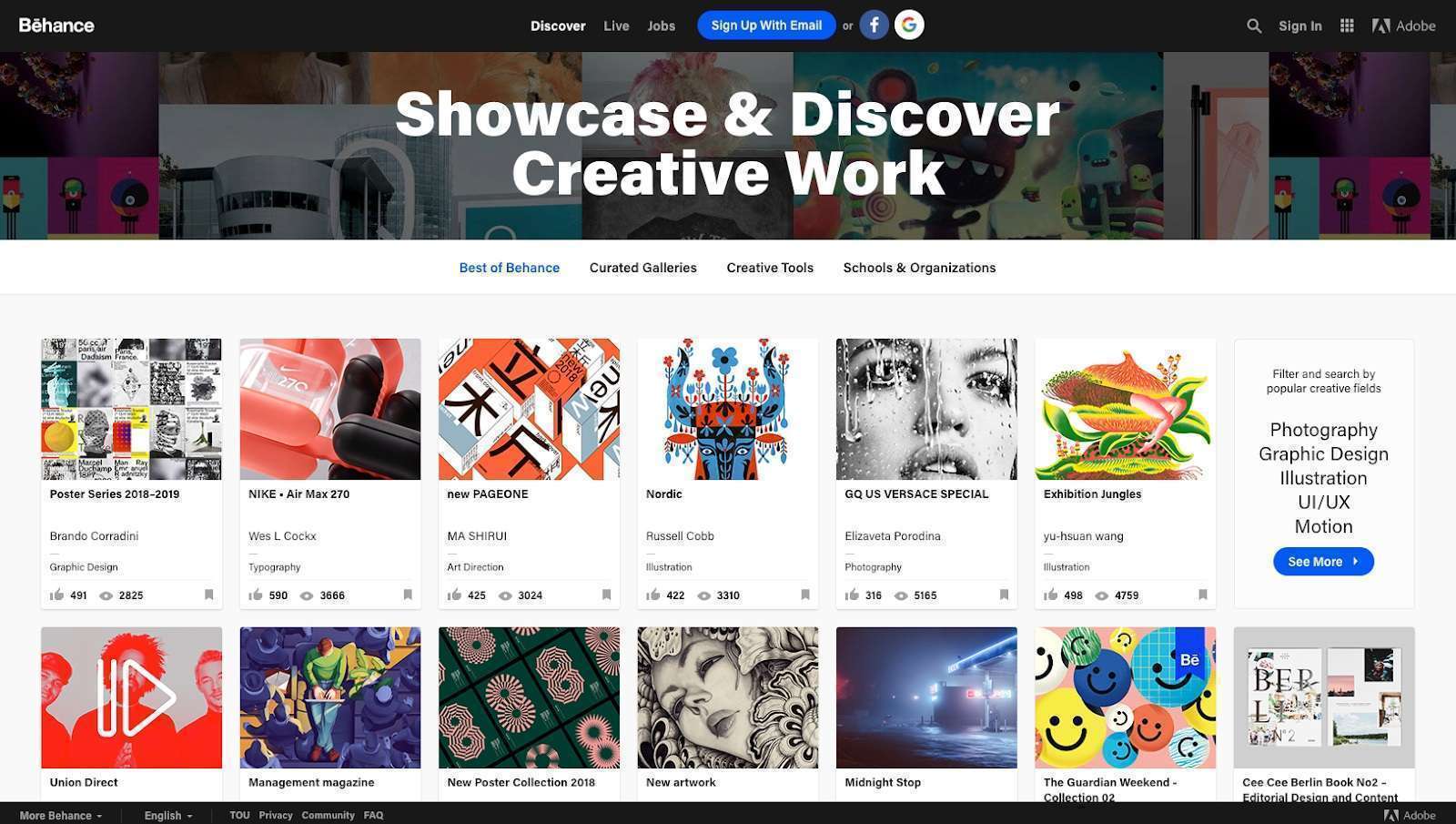
For those people working as developers, Github is the ideal option, since it gathers the work of IT professionals of several segments.
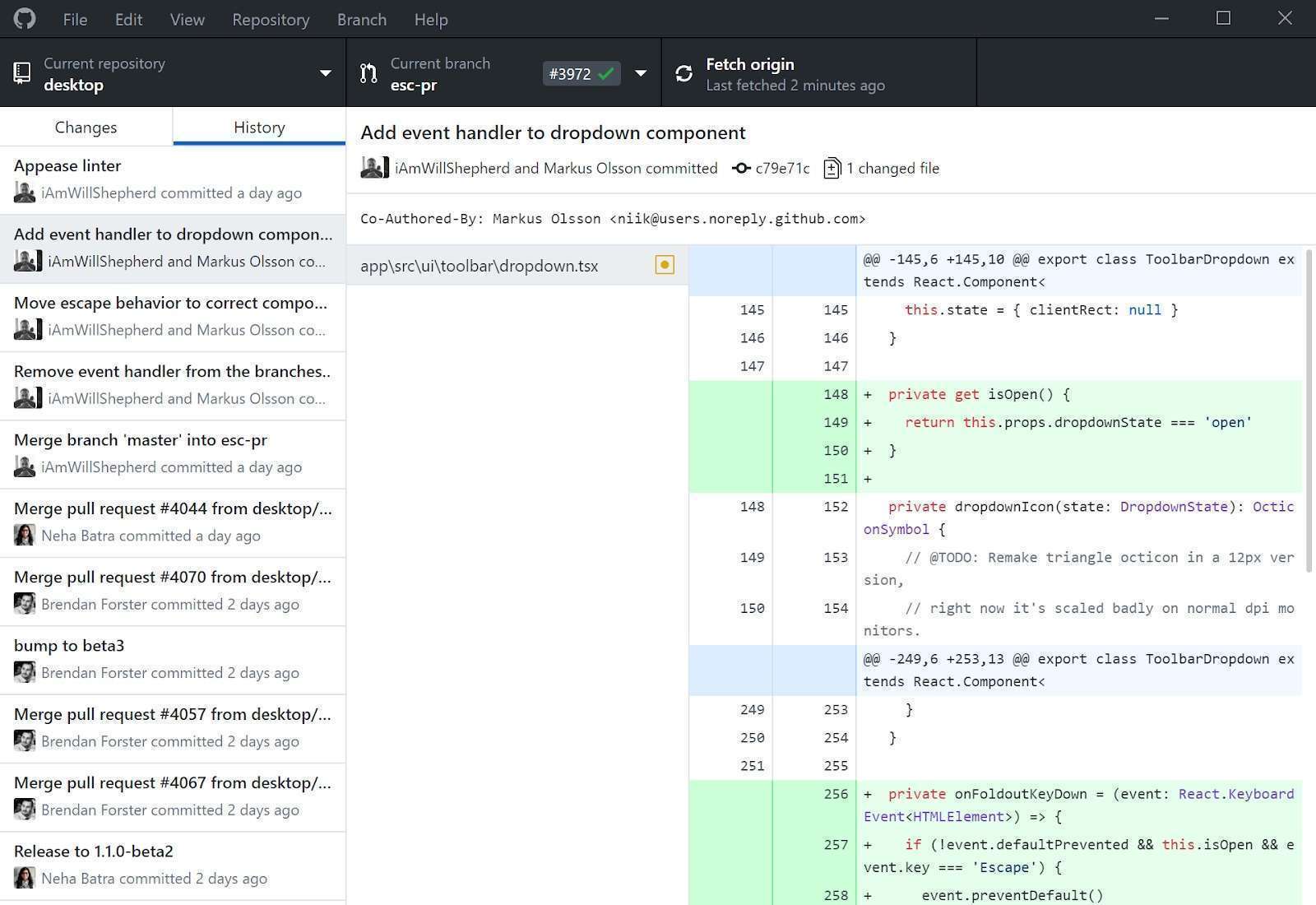
For copywriters, Medium is the ideal place where to publish your texts and have a showcase to sell your work.
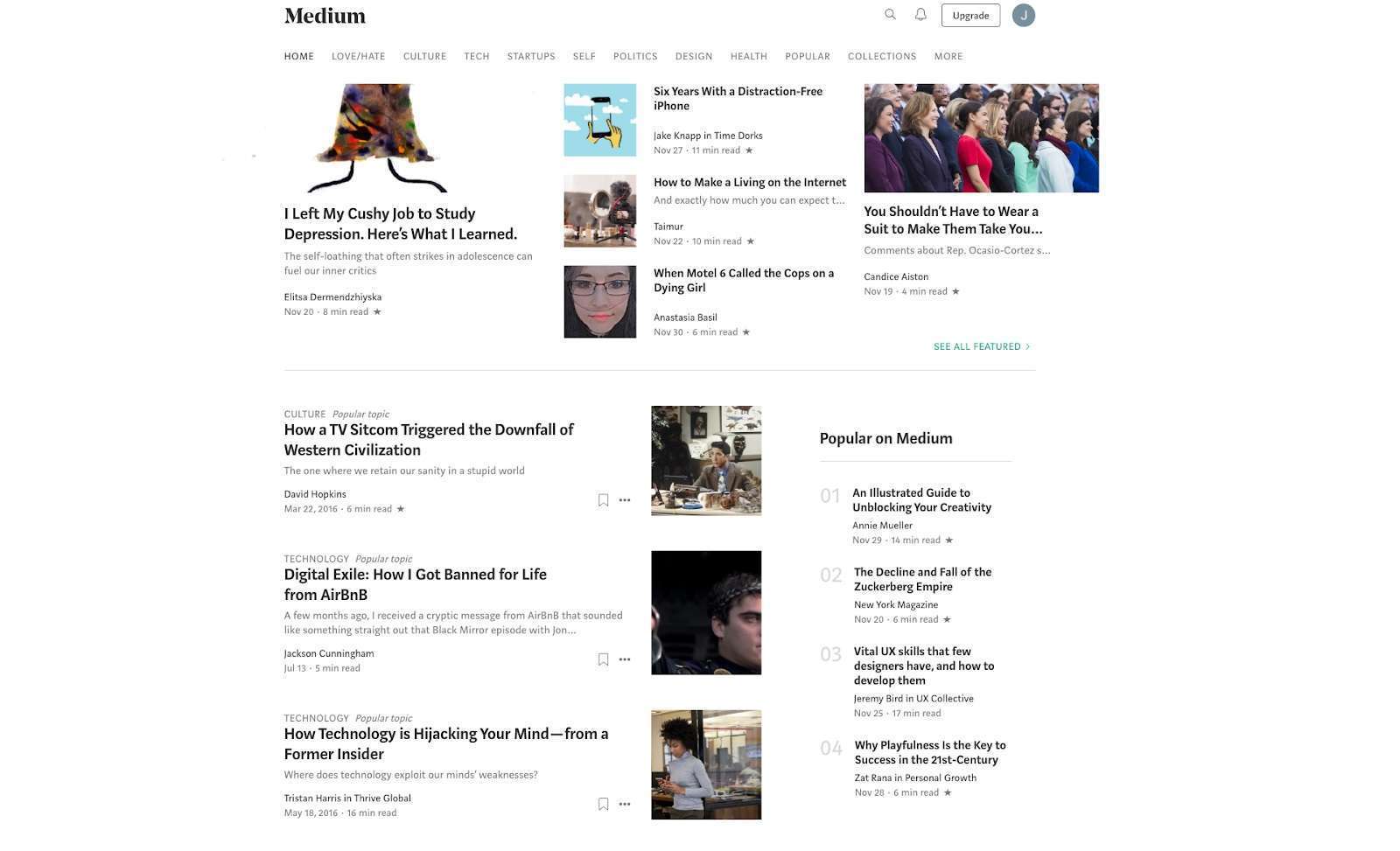
However, it would be best if you kept in mind that these websites are like shop windows on which your work can attain visibility. They are not designed for freelancers to seek projects or clients.
Solely through Workana, you may have access to a vast variety of selected projects and job posts, split into categories according to your profile. On our platform you can search for projects which fit your abilities, applying filters by fixed price or hourly-rated, by language, localisation, and so on.
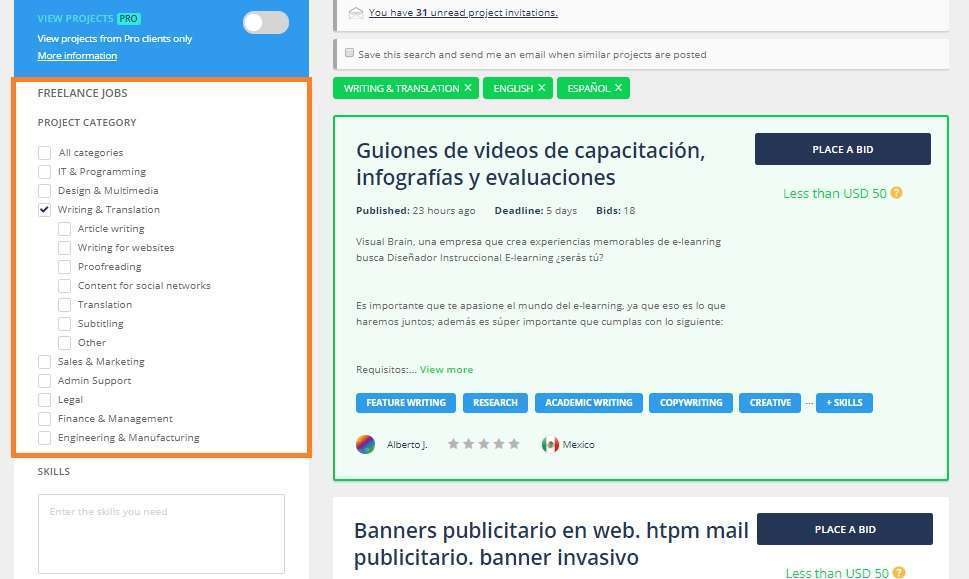
On the other hand, before submitting a proposal for a Project, you can check the profile of the person who is hiring, and revise how freelancers have ranked that client.
When you search for projects, the information of the owner of the Project will be displayed as follows:
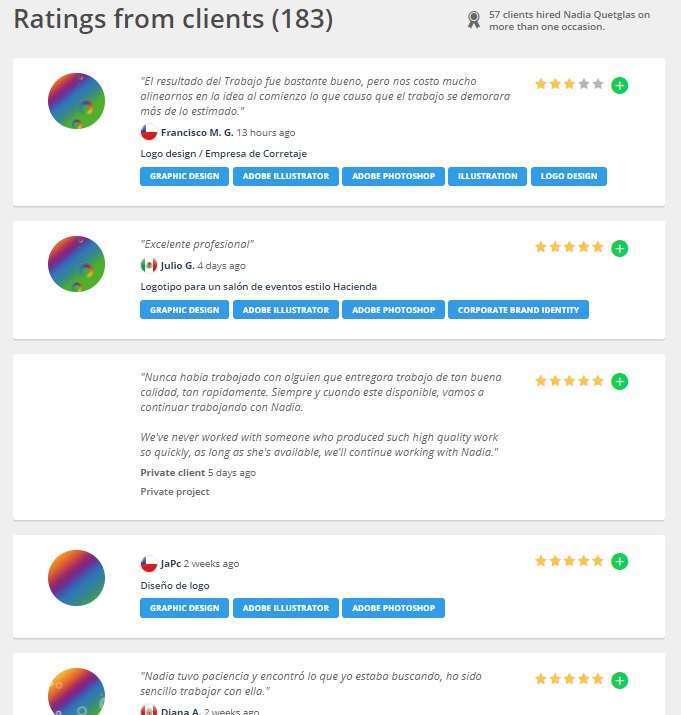
Conclusion
Now that you have an insight about the key steps, the advantages and disadvantages of the profession, how to stand out as a freelancer, how to conquer opportunities and, above all, how to start up your freelance job, it is time to put your hands at work and begin with an Action plan.
Here, at Workana, you have space and the tools that you need to take your first step forward into your career as a freelancer. Our goal is to have the best professionals available in the market, offering everybody an excellent platform, so that you can work with the best enterprises, in exciting projects, building long-term relationships.
We want to be an essential part of the life of everybody, especially in which regards the building and development of each freelancer’s work.
Sign in right now at Workana, the leading platform in Latin America connecting you with the best freelance job opportunities.



